Nestled in Chinatown’s Vancouver Black Library last May, I joined a small crowd of people gathered to listen to local artists perform covers and original music. The open mic night, hosted by Vancouver-based Black, Indigenous and people of colour music collective Couch Jams, happens almost every other week, providing opportunities for racialized artists and musicians in the city to perform the music they love.
Around me, about 50 others huddled around the stage fitted with warm, colourful lighting and a setup in the style of NPR’s Tiny Desk Concerts: a couch, a microphone and a handful of musicians ready to support the string of performers to come. Throughout the evening, artists of all experience levels performed primarily R&B music to an attentive, encouraging audience. Some were working artists building performance experience and others were people who love music and wanted to try their hand at singing for a crowd.
The night felt akin to others I’ve attended at the Birdhouse and Red Gate — Vancouver venues that have made a name for themselves in local independent arts communities for their intentionally inclusive, experimental approach to live programming. They’re widely embraced by younger artists and attendees because they’re rare: in Vancouver, performance venue spaces are scarce and expensive.
Over the past few years, artist spaces have faced considerable economic hardships, in part because of increased production and real estate costs since the pandemic. According to the 2019 Vancouver Music Strategy, a lack of dedicated spaces for underrepresented communities, coupled with structural barriers including high costs, strict regulations, complex permitting processes and systemic marginalization, creates ongoing gaps in the city’s ecosystem of live music performance spaces.
For young, independent artists, it can be challenging to access performance spaces without connections and resources. The cost of booking a performance venue can range anywhere from $500 to $1,500 for the night, which can be especially prohibitive for emerging, independent artists who are not sharing costs with promoters or record labels and struggle to find consistent work. They might be able to recoup some costs through ticket or merchandise sales, but those don’t guarantee living-wage profits at the end of the night.
While venue scarcity can mean some artists don’t have the luxury of being selective about the revenue-generating gigs that come to them, some take a loss on the cost of booking the venue space in order to put on the shows that reflect their artistic aspirations and intentions. For racialized artists, this can be even more challenging when spaces that are designed specifically for underrepresented communities feel sparse.
Dreaming up the ideal
Matt Yang is a 24-year-old musician and the founder of the Couch Jams collective. He created it out of the desire to build a safe space where young, racialized artists could access safe performance spaces, build their artistic practice and be paid fairly for their work.
Once a music student at Capilano University, Yang says he and other racialized students didn’t feel represented by the music faculty or curriculum, with courses that often took an ahistorical, culturally uninformed approach to music.
At his first-ever music gig for a show at English Bay, Yang says, only some people were paid, and all of them were men. “It was a weird dynamic [where] these people are profiting off of having talented artists on their lineup, not paying you and they’re also not also giving you the credit that you deserve,” he explained.
When pandemic gathering restrictions began to lift in 2021, Yang started organizing events of his own. Faced with the very complex processes that make it so hard to build a vibrant, spontaneous cultural scene, Yang says it was overwhelming at times to navigate. From the convoluted permitting process to deposit fees and navigating microaggressions while attempting to run a music event for racialized people, Yang was surprised at how much it takes to produce a simple outdoor concert.
Even in its early days in 2021, Couch Jams was a communal effort. Resources and solutions were crowdsourced; people offered to help volunteer and assist with crowd control, and local vendors came out to support the artists.
Couch Jams began as a one-off show at North Vancouver City Hall featuring local artists, and it later evolved into weekly jam sessions at Yang’s home to what it is today. In recent months, Couch Jams has held musical showcases at the Cobalt and the Annex. They’ve also secured grant funding from Vancouver Foundation through Community Arts Council of Vancouver.
“Couch Jams for me was a way to dream up a kind of ideal music scene [in Vancouver] that provides equal opportunity,” Yang said.
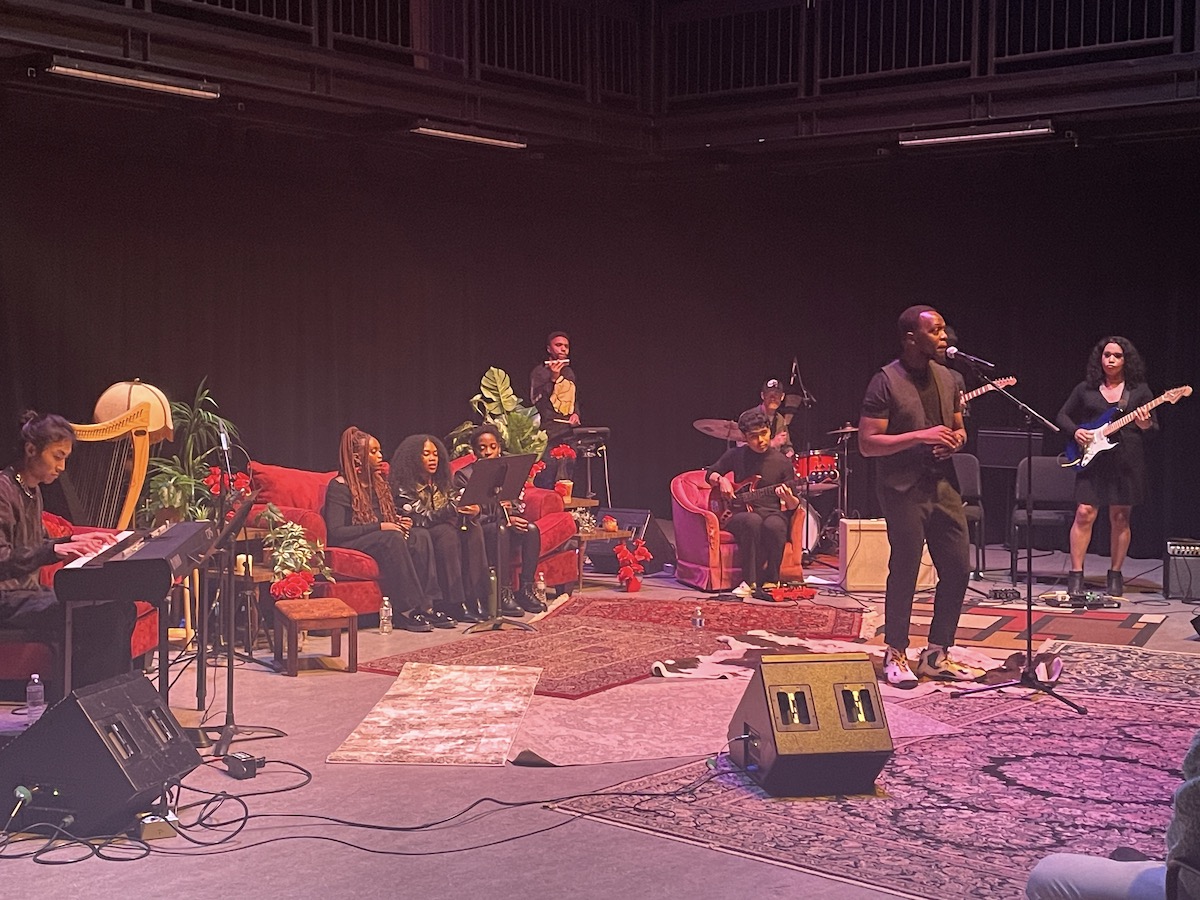
A tougher run for racialized and immigrant artists
Groups like Couch Jams are essential for building a dynamic cultural scene, and crucial for racialized artists who struggle to find spaces built for them.
Haleluya Hailu, a 20-year-old singer-songwriter from Burnaby who has performed with Couch Jams, says accessible venue spaces are especially important for young artists to build their chops by learning from their mistakes, and to help them build a creative future within the city. As an independent artist, she says it’s hard to access venue spaces alone.
“There [are] so many of these things no one tells you that you’re supposed to already magically know when you decide to become a musician,” Hailu said.
Yang agrees. Coming from a first-generation immigrant household, he did not have social connections that might easily result in venue booking opportunities, nor the working familiarity with corporate standards under which some venues operate.
There’s no lack of talented musicians in the city, but without generational ties to the city or in-depth knowledge of navigating bureaucratic processes, many artists struggle to break through and consistently access affordable, relevant venues.
When Hailu first began seeking out performance spaces in the city, she didn’t have a press kit, website, artist bio or footage of her performing. Between Vancouver’s high cost of living and at times unsupportive cultural environment, she says, plenty of talented artists are leaving the city to build careers in other cultural hubs like Montreal and Toronto.
Throughout his time organizing events in the community, Yang has often wondered how so many talented artists haven’t gotten an opportunity to showcase their skills onstage yet. Many, including those most closely involved with Couch Jams, have said they feel spaces in the city don’t make them feel valued as artists.
“I often hear artists say many of these spaces don’t make them feel comfortable enough to be there. And I think a big part of that just has to do with the composition of the system’s structures and the hierarchies within these spaces,” he said.
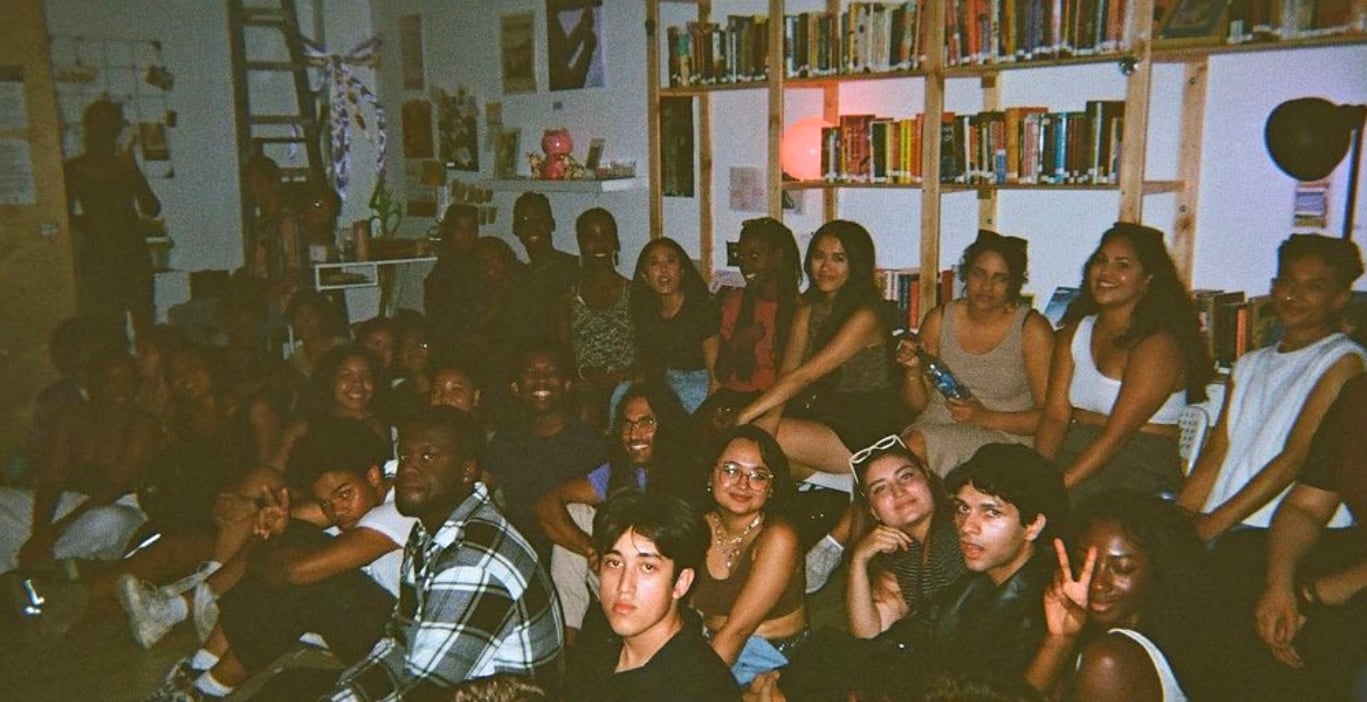
‘Not enough capacity’
Navreet Dhaliwal, a music programmer and founder of Face the Music Entertainment, a company that works on curating diverse musical programming around Vancouver, says production costs have increased in the years immediately following the COVID-19 pandemic, and equity-seeking groups are reliant on public streams to fund passion projects.
“There are so many of these artists who are going out of their way trying to create new ideas, new projects, and collaborate with new people. But then at a certain point you’re stuck in a city where there’s just not enough capacity,” she said.
Dhaliwal says these barriers are intensified for new artists with English as their second language, making navigating the grant-seeking process and connection building at mainstream venues that much more difficult.
It’s frustrating to see, especially for those like Dhaliwal who are working to make sure artists in the city can stay here to pursue their art.
“There’s an ongoing housing crisis here, we’re losing venues left and right due to the city’s gentrification and just not really prioritizing the art. And it really never has, in terms of BIPOC folks accessing the spaces.”
G-Luve echoed Dhaliwal’s sentiments. A self-described “wearer of many hats,” the DJ, cultural programmer and decades-long fixture in Vancouver’s music scene has booked talent and can be found behind the turntables at independent venues across the city. He wished to share only his performance name with The Tyee as he likes to keep his professional identity separate from his artistic practice. He has worked for years to build more inclusion in Vancouver’s music scene that can sometimes feel exclusive and intimidating.
“If I wasn’t in a certain clique,” he recalls of his early years on the scene in the 1990s, “then I wouldn’t be invited to the table.” He has since dedicated much of his artistic practice to making space for and lifting up the work of emerging artists from racialized communities.

Making our own fun
As several venues across the city struggle to keep doors open, other members of the creative community are working to address the regulatory and economic barriers to making space for art and experimentation that fosters the joyful, experimental and creative exchange that many seem to want and see lacking in Vancouver.
David Duprey is the owner of the Narrow Group, an East Vancouver company that owns and operates bars, restaurants and spaces for artists of all disciplines to “do their art.” He grew up in Vancouver’s 1980s punk rock community and moved to San Francisco, where he lived until 2004. He says his time away from his hometown opened his eyes to how much work needed to be done to make Vancouver a fun city to live in.
“I think [spaces for] the alternative and punk rock and weird and queer and all the rest are integral to be a functional, adult fun city,” he said.
“When you lack that, you suck... so I’m creating the city I want to live in.”
As music professionals, G-Luve and Dhaliwal are passionate about creating the necessary arts infrastructure to provide the environment for artists to thrive. To feel a sense of belonging and connection, they say, a healthy arts and culture ecosystem is essential.
This means simplifying the process of running music events in the city by loosening noise bylaws, which can often result in hefty fines, and shortening permit application timelines, allowing for more spontaneity. They would also like to see more artist access to public funding that supports the creation of inexpensive live music performance spaces in the city, catered to community needs.
“All major cities that we look at are built around arts and culture. That’s why people go there.... They don’t go there to check out the banking district. People have been working in this space for a long time. They come and go because it’s so hard to do this work here and because of how the powers that be don’t really see the value of that [work],” Dhaliwal said.
As Couch Jams continues to grow, they’re actively creating spaces catered to community needs. Since its inception, Couch Jams has held open mic nights that have celebrated Black history and LGBTQ2S+ pride, as well as an event that offered a safe space for community healing in light of the ongoing atrocities in Palestine.
At the centre of their efforts is making sure that their support of the artistic community stays at the top of their list. Open mic events are pay-what-you-can to cover their costs. Moving forward, Yang is mindful of keeping costs as accessible as possible for bigger showcases to ensure they aren’t pricing out the community, while also paying artists fairly for their work.
Ultimately, Yang wants Couch Jams to be a tool for artists to build confidence and effectively shift Vancouver’s music culture towards one that more accurately reflects the city’s diverse talent.
As Haleluya Hailu reflects on her time as an emerging artist in Vancouver, she remembers the many nights when she was 17 or 18 years old, arriving at live music venues where she felt out of place — they didn’t feel safe to be as a teen, and she was often the youngest person in the room in addition to the only racialized person.
“Vancouver still has this need to have people that conform to a certain look, esthetic or sound of music,” Hailu said. “The biggest struggle I found was being a young woman of colour finding spaces where I wasn’t the only woman of colour.”
But she’s found something different through Couch Jams and its “incredible community,” she said.
“You don’t really need to conform to make good art.” ![]()
Read more: Music, Municipal Politics, Urban Planning


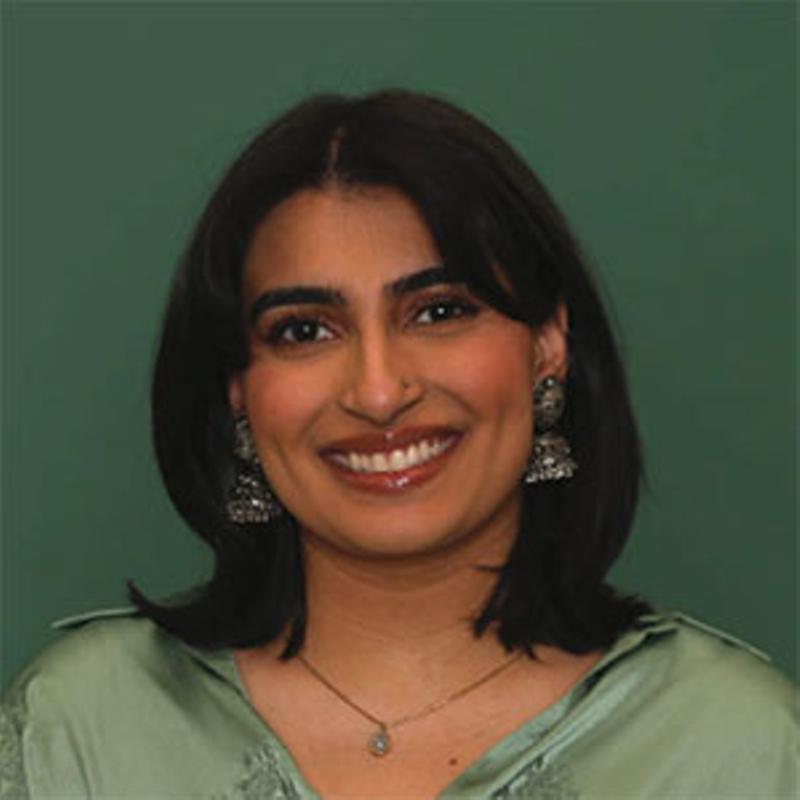

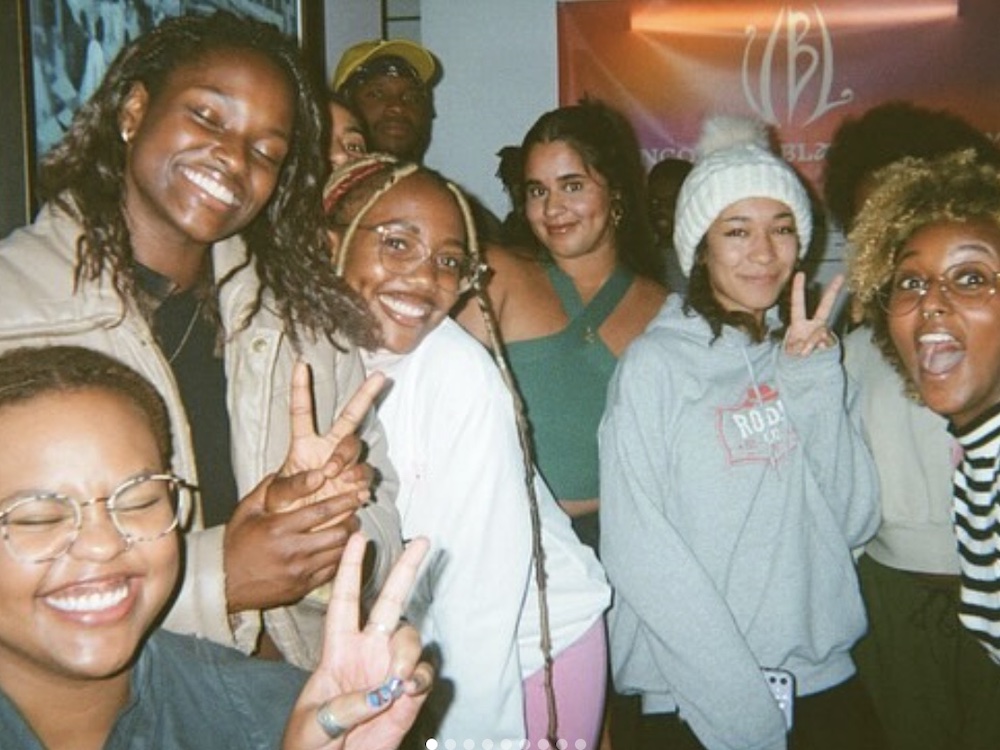


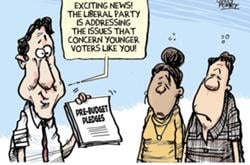









Tyee Commenting Guidelines
Comments that violate guidelines risk being deleted, and violations may result in a temporary or permanent user ban. Maintain the spirit of good conversation to stay in the discussion and be patient with moderators. Comments are reviewed regularly but not in real time.
Do:
Do not: